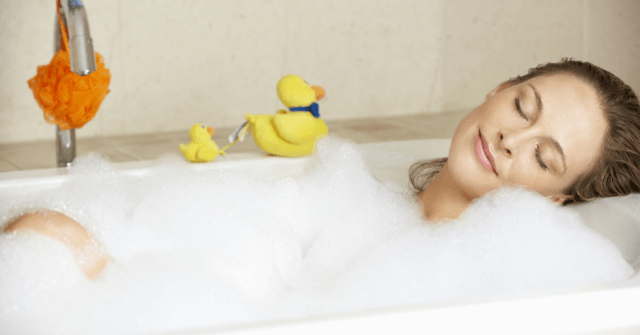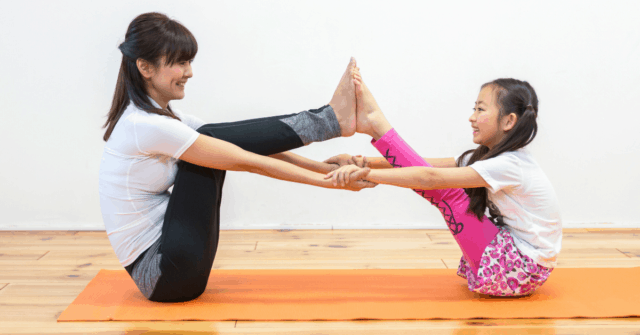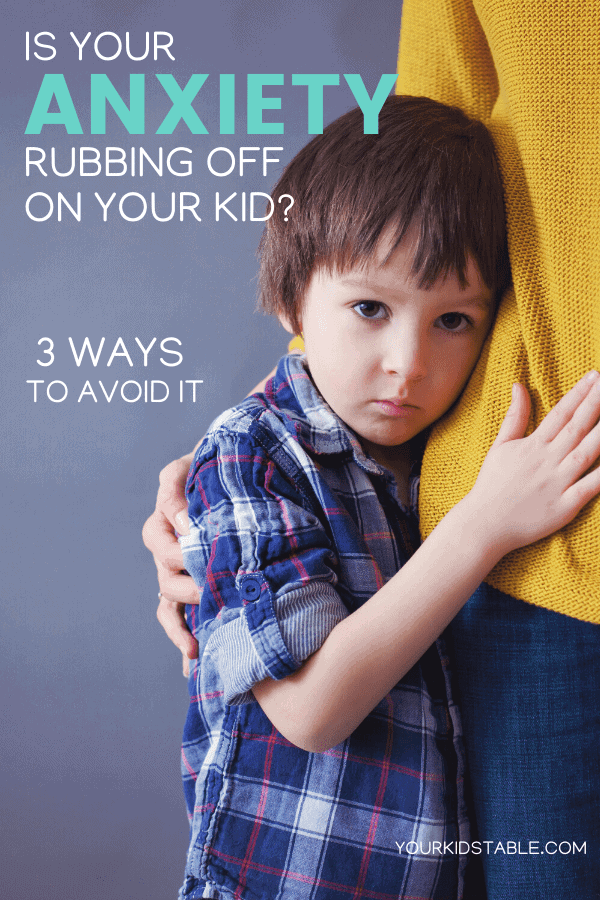When parents are faced with their own anxiety, it can take over their life. Learn how to prevent children from becoming anxious too with three easy strategies!
I don’t have an anxiety diagnosis. But, anxiety has been something I’ve struggled with for most of my life. I didn’t realize how much so until my sons began to experience anxiety at a young age.
I don’t think I caused their anxiety, but there’s no denying the fact that our feelings are contagious. Another person’s mood, energy, and feelings can transfer to us. We can absorb and then feel what another near us is feeling whether is joy, peace, anger, or anxiety.
Some of us are more affected by other’s feelings, but our children, in particular, are like sponges.
They watch and absorb us and our feelings so much more than most of us will ever realize.
As a parent that struggles with anxiety sometimes, I try to be extremely aware of my own anxiety and how it could impact my kids. But, I also use my own anxiety to help my children feel understood and empowered to grow strong coping skills.
In a time when anxiety is on the rise, I want to share three strategies I’ve found to help parents address their own anxiety so that it doesn’t wear off on their kids.
Your Kids Might Be Anxious Anyways
Before we dive into these 3 tools to cope with your anxiety, you must know that if you have anxiety, it’s more likely your child will too. There is a genetic link. So, even if you follow these strategies and others to keep your anxiety from projecting onto your child, they may still face the challenge of anxiety themselves.
That’s okay. You’ll be able to help them better because you get it.
Natasha Daniels, an anxiety expert, taught me that there’s a lot of good qualities that anxious people and children tend to have. They’re empathetic, understanding, and often kind-hearted. Anxiety can even be celebrated for the unique perspective it gives those of us that experience it.
3 Ways to Avoid Your Anxiety From Rubbing Off on Your Child
Let’s get to it! How can you avoid projecting your anxiety onto your kid? I’ve got 3 strategies to share that you can start using today.

Affiliate links used below. See our full disclosure.
#1. Self-Care
You’ve heard it before, but so many of us as parents don’t make enough time for our own self care and mental health needs. There are so many ways that you can give yourself the gift of self-care, which is also a gift to the rest of your family. I’ve found that there are two ways you can make self-care a reality instead of another thing you should do.
One way is to make self care a part of your daily routine. Can you start the day off with something that calms and centers you? Or, make time during naps or at the end of the day? Make a commitment to trying anything from the list below:
- Exercise (run, walk, yoga, Pilates, dance videos, weight train, etc.)
- Quiet prayer time
- Journal writing
- Meditate
- Breathing exercises
- Take a bath
- Read a book or magazine
Making time for self-care is different than saying, “I should get up early and run.” Instead, it’s putting yourself on the calendar, “This week, I’m going to get up at 6 am, before anybody else is awake, and walk outside for 30 minutes while I listen to my favorite music.”
The second way is noticing your warning signs for increasing anxiety.
Did you just watch the news and now feel anxious? Are the kids fighting so much you can’t take it one more second? Whatever it is, have a plan for what you can do when your anxiety sneaks up on you. Here are just a few ideas for when you need to deal with your anxiety in a moments notice:
- Write down what you’re actually worried about briefly. Then write down 3 things you’re thankful for. Stick it in a jar or tear it up, whatever feels right.
- Take deep belly breaths
- Go outside for a few minutes, if possible
- Call a trusted friend
- Give yourself 5 minutes to journal and/or pray
The important thing here to is to make time to manage your feelings. I’ve caught myself trying to push those feelings away and just continuing with my day. That only leads to me lashing out to those around me. At that point, it’s hard for everyone not to pick up on my anxiety.
#2. Watch your mouth and your mood
I’m a verbal processor. That means I want to talk to understand what I’m learning or what’s going on in my head. It’s also a way to vent. Many of us can start to spew our worries around just to get them out of our head.
While there’s nothing wrong with expressing concerns, we need to pay attention to how we’re voicing them.
Meaning, we can, in a worried and stressed tone, approach our partner and start spewing even our simplest worries: “What time are they coming? I need to clean up the kitchen still and vacuum and make the dessert. I need to know what time they’re coming so I make sure I have time to do everything.”
Or, we can still express ourselves without letting our anxiety and stress take over. With some mindfulness about how you’re speaking, you could say, “Hey, I’m looking at the time and seeing I’ve got 3 big things on my to-do list before they get here. Can you text them right now and find out their ETA. That will help me focus on what needs done.”
I’ll tell you from personal experience that this takes PRACTICE. So give yourself grace. And, while this example might seem perfectly ordinary, when you’re an anxious person, so many ordinary daily events give the opportunity for our anxiety to increase.
Other times, we might not verbalize anything, especially when just our kids are around. But, we’re edgy and distracted. Our kids can pick up on the anxiety without us saying a single word. They can adopt this anxious state of being on a regular basis. That’s why it’s important to follow step 1 and 3 too.

#3. Calm Down Together
To manage our own anxiety, we often need to take a few minutes away from whatever we were doing. If you’re home alone with kids, that might not be an option. But, you can participate in calming activities together that will help you calm down in the moment and help your children feel more grounded while teaching them healthy coping strategies.
Two powerful calming strategies that are easy to do with children of almost any age is belly breathing. To help kids understand how to belly breathe, lay down on the floor together on your backs. Breathe in through your lungs until your belly fills up with air, you’ll visibly see your stomachs rise. Then exhale.
Each time you breathe in, you can count and hold it longer. Then exhale longer too. You can also put a Youtube video on that walks you through this exercise.
The other calming strategy that’s perfect to get kids involved in is exercise or movement. Yoga is a quick option because you don’t need much of anything and kids can benefit from moving through the various positions too. Try this quick yoga video that’s all about decreasing anxiety.
Doing jumping jacks, push ups, or going for a walk together all work too.
And, if your child is wondering why you are suddenly doing yoga or jumping jacks, it’s okay to tell them: “Sometimes my brain gets stuck worrying, even though I know I don’t need to worry. Breathing/yoga/jumping helps my brain to stop the worries.”
Expressing your coping strategies and talking about them in an empowering way is a gift to your child.
They will watch, learn, and absorb this from you too.
Help for Your Anxiety and Your Child’s from an Expert
Anxiety is not my expertise, but I have learned a lot between two of my anxious kids. My two favorite resources are:
1. Anxious Kids, Anxious Parents, by Reid Wilson and Lynn Lyons – This book has changed the way I see and help my kids with their anxiety.
I’m tremendously grateful a friend recommended it to me. In it you’ll find easy to read and implement strategies that can truly help your kid overcome their anxiety.
This book is geared towards kids 8 and up.
2. Crushing Anxiety Course, by Natasha Daniels. This is a great online course to give you concrete tools to help you child crush their anxiety.
I took this for my kids, and it helped my son go from anxiety attacks to coping well.
This course is for kids as young as 2.
And, with both of these resources I learned A LOT about helping myself too.
More on Kids Anxiety
5 Important Signs That A Child Might Be Struggling With Anxiety
How to Use Essential Oils to Calm Anxious Kids
What If Your Child Wasn’t Anxious About Food Anymore?
Alisha Grogan is a licensed occupational therapist and founder of Your Kid’s Table. She has over 15 years experience with expertise in sensory processing and feeding development in babies, toddlers, and children. Alisha also has 3 boys of her own at home. Learn more about her here.

Hello,
The challenge we have had is that our toddler (now 17months old) is very distracted at mealtime and we are finding it hard to keep calm/find ways to get him to refocus on his food. He is normally a very good eater as long as he controls himself what to eat from his plate. But at the moment he is just pointing at everything around him and seems to demand objects he sees in the kitchen around (timer, pepper pots, colourful cups, kettle…). We have tried hiding things but lets face it we cannot hide the whole kitchen. We have tried acknowledging to get him to move on (“yes these cups look amazing and i understand you want to touch them and play with them right now but it is dinner time and lets focus on our food”), distracting to get him to focus on his food (by singing mainly, or being playful with the food he has on his plate/fork etc), ignoring… sometimes one of these things does work but most time the whole meal time experience just turns into a bit of a struggle, which we had managed to avoid so far as it is very important to me that he sees meals as a fun time to interact and relax with us. Would you have any suggestion? I find all of your article very very very useful so if you have any thought, please share!!
Hey Ophelie,
Thanks for reaching out. We typically do recommend removing all distractions, but possibly trying to find some soothing music that you can play during meals might help to keep him more focused on his food. If he’s having trouble moving all around, I’d also try sensory activities prior to meals so that he is more calm and focused on what he is eating. Hope that helps!
Best,
Desiree
I’ve found it helpful to verbalize what I am doing to help my anxiety and I’ve noticed my kids are more likely to use those strategies later when they’ve seen me do it and heard me talk through what I’m doing and why.
Great suggestion! Thanks for sharing with us!
Best,
Desiree